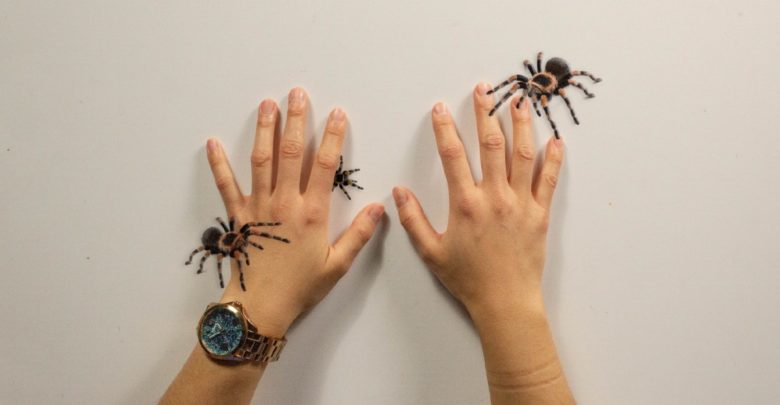 Supplied
SuppliedAs summer weather brings spiders out to play, a University of Alberta design student created a way for individuals to face their fear of spiders without even going outside.
Second-year Masters of Design student Anna Chakravorty’s multidisciplinary thesis combines augmented reality (AR) and mental healthcare to create an interactive game for both therapists and their patients. The game uses exposure therapy to help patients overcome arachnophobia — a fear of spiders — by training the patient in real-life scenarios; one level has patients creating a campfire, where overturning a piece of wood reveals a hidden spider.
While earlier levels depict spiders which are cute and animated —Chakravorty cited Youtube phenomenon Lucas the Spider as one of her models — as the game continues, the spiders become progressively more realistic.
Designing these more advanced levels wasn’t fear-inducing for the design student, for whom personal phobias were not a factor in selecting the topic of the game.
“I had the biggest problem when I had to select a type of phobia to focus on,” Chakravorty said. “I myself don’t like bugs, I don’t like insects, if I see one I try to kill it! But my biggest fear is bees, bees are impossible for me —sometimes when I’m sitting at my desk and I hear a buzzing sound, I just lock myself in!”
“I couldn’t do bees for sure, but I wanted to pick something that was tangible, so in that relative ground I picked spiders. At least they are human friendly because they eat insects!”
Though Chakravorty admits to killing bugs that cross her path, one important element to the game is saving the spider, instead of harming it.
“The game tries to teach empathy,” she said. “What you have to do is try to build a relationship with the spider.”
The game incorporates Greek mythology into its worldbuilding, specifically the myth of Arachne, a weaver who challenged the goddess Athena to a competition and won — Athena turns Arachne into a spider as punishment for showing her up. In the game, patients bond with Arachne as they are trained to manage their anxiety in high-stress situations. If they win over Arachne, she will help them to defeat Phobos, the Greek god of fear.
The storytelling aspect was important for Chakravorty, who grew up reading and loving Greek myths for how they reminded her of her own culture and how they present complicated ideas.
“My introduction to Greek mythology was thanks to the Percy Jackson series,” she said. “The more I read the more I sensed a familiarity with my own Hindu mythology.
“Another interesting thing about Greek mythology is the way they portray the Gods. They are portrayed in a human way — they make mistakes and aren’t perfect. They feel emotions like jealousy, greed, power, and betrayal.”
This connection between emotion and action presented by Greek mythology was something Chakravorty noticed reflected in her other childhood love: gaming.
“I understood that games can change behaviours,” Chakravorty said. “I came into this field called Serious Games, which is basically games that actually have a health benefit or an educational benefit, so that was one of my biggest inspirations.”
It was this new perspective on gaming combined with her passion for mental healthcare that drove Chakravorty to create virtual exposure therapy for those who “can’t access these health facilities from sitting at home.”
Though this initial project focuses on spiders, Chakravorty hopes to see her model applied in many different ways.
“The framework I’ve created can be applied to different health sectors too,” she said. “It can be expanded to heights, it can be expanded to public speaking, or it can even help patients with dementia.”
Amidst the uncertainty of the global pandemic, Chakravorty has lots of hope for AR’s potential to bring about unanticipated change in mental healthcare.
“With COVID-19, everyone is jumping into digital health services and there are a lot of people who want to visit their psychiatrists but they can’t go,” she said. “Maybe AR works then. You’re sitting at your home, I’m sitting at my home, and I can help you. I hope people realize this potential.”




